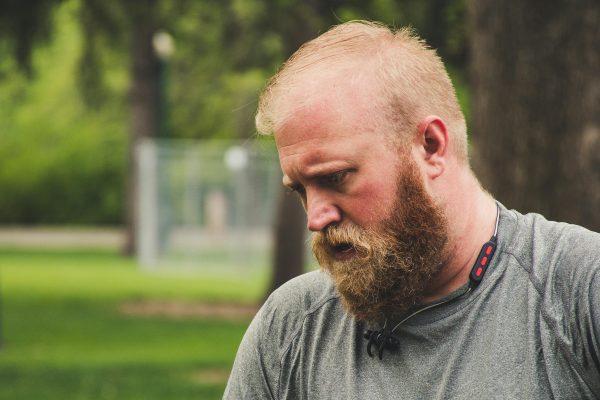As we age, our bodies undergo many changes. One of the most significant changes for men is the gradual decline in testosterone levels. Testosterone is the primary male hormone responsible for developing and maintaining male characteristics such as muscle mass, bone density, and sex drive. However, as we age, our bodies produce less testosterone, and this decline can have a significant impact on our overall health and well-being. In this article, we’ll explore the truth about testosterone and aging and what you need to know to stay healthy and vital as you age.
- What is Testosterone?
- How Does Testosterone Levels Change with Age?
- The Effects of Low Testosterone
- The Benefits of Testosterone Therapy
- Natural Ways to Boost Testosterone
- FAQs about Testosterone and Aging
- Question: What is considered a normal testosterone level for men?
- Question: What are the risks of testosterone therapy?
- Question: Is testosterone therapy safe for older men?
- Question: Can women benefit from testosterone therapy?
- Question: Are there any natural supplements that can boost testosterone levels?
- Conclusion
- New Findings on the Relationship Between Aging and Testosterone
What is Testosterone?
Testosterone is a hormone produced primarily in the testes in men and in smaller amounts in women’s ovaries. It plays a vital role in the development and maintenance of male sexual characteristics, including the growth of body and facial hair, deepening of the voice, and increased muscle mass and bone density. Testosterone also plays a critical role in the production of red blood cells and the regulation of mood and energy levels.
How Does Testosterone Levels Change with Age?
As men age, their bodies gradually produce less testosterone. This decline usually starts in the late 30s or early 40s and continues throughout a man’s life. The rate of decline can vary widely between individuals, but on average, testosterone levels decrease by about 1% per year after age 30. By age 70, the average man’s testosterone levels will have declined by 50%.
The Effects of Low Testosterone
The effects of low testosterone can be significant and wide-ranging. Some of the most common symptoms of low testosterone include:
- Decreased sex drive
- Erectile dysfunction
- Loss of muscle mass and strength
- Increased body fat
- Decreased bone density
- Mood swings and irritability
- Fatigue and low energy levels
- Difficulty concentrating
- Sleep disturbances
In addition to these symptoms, low testosterone has also been linked to an increased risk of several health conditions, including diabetes, heart disease, and osteoporosis.
The Benefits of Testosterone Therapy
For men experiencing the symptoms of low testosterone, testosterone therapy can offer significant benefits. Testosterone therapy involves the use of medications such as testosterone gels, patches, or injections to supplement the body’s natural testosterone levels.
Some of the potential benefits of testosterone therapy include:
- Increased sex drive and improved erectile function
- Increased muscle mass and strength
- Reduced body fat
- Increased bone density
- Improved mood and energy levels
- Improved cognitive function
- Improved sleep quality
It’s essential to note that testosterone therapy is not suitable for everyone, and there are potential risks and side effects associated with its use. It’s crucial to discuss the potential benefits and risks of testosterone therapy with your doctor to determine if it’s right for you.
Natural Ways to Boost Testosterone
While testosterone therapy can be an effective treatment for low testosterone, there are also several natural ways to boost testosterone levels. Some of the most effective strategies include:
- Exercise: Regular exercise, especially weight training, can help increase testosterone levels.
- Diet: A diet high in protein, healthy fats, and micronutrients like zinc and vitamin D can help support healthy testosterone levels.
- Sleep: Getting enough quality sleep is crucial for maintaining healthy testosterone levels.
- Stress Reduction: Chronic stress can lower testosterone levels, so managing stress through practices like meditation and mindfulness can help maintain healthy testosterone levels.
- Sexual Activity: Regular sexual activity has been shown to increase testosterone levels.
FAQs about Testosterone and Aging
Question: What is considered a normal testosterone level for men?
The normal range for testosterone levels in men is between 300 and 1000 nanograms per deciliter (ng/dL). However, it’s important to note that testosterone levels can vary widely between individuals, and what’s considered normal for one person may be different from another.
Question: What are the risks of testosterone therapy?
Testosterone therapy has been associated with several potential risks and side effects, including an increased risk of heart disease, prostate cancer, and blood clots. It’s crucial to discuss the potential risks and benefits of testosterone therapy with your doctor before starting treatment.
Question: Is testosterone therapy safe for older men?
Testosterone therapy can be safe and effective for older men with low testosterone levels, but it’s essential to discuss the potential risks and benefits of treatment with your doctor.
Question: Can women benefit from testosterone therapy?
While testosterone therapy is primarily used to treat low testosterone levels in men, it can also be used to treat certain conditions in women, such as low libido and osteoporosis. However, testosterone therapy can have significant side effects in women, and it’s crucial to discuss the potential risks and benefits of treatment with your doctor.
Question: Are there any natural supplements that can boost testosterone levels?
There are several natural supplements that have been shown to help support healthy testosterone levels, including DHEA, Ashwagandha, and fenugreek. However, it’s crucial to discuss the use of any supplements with your doctor before taking them.
Conclusion
Aging is inevitable, and the effects of low testosterone don’t have to be. By understanding the truth about testosterone and aging, you can take steps to maintain healthy testosterone levels and enjoy a vibrant and active life as you age. Whether through testosterone therapy or natural strategies like diet, exercise, and stress reduction, there are many ways to support healthy testosterone levels and promote optimal health and well-being. So, take charge of your health today and discover the power of healthy testosterone levels!
New Findings on the Relationship Between Aging and Testosterone
– A study published in 2016 in the New England Journal of Medicine reported that testosterone treatment for 1 year in symptomatic men 65 years of age or older with low testosterone levels had a moderate benefit with respect to sexual function and some benefit with respect to mood and depressive symptoms but no benefit with respect to vitality or walking distance².
– A book published in 2004 by the Institute of Medicine reviewed the evidence on testosterone levels and health outcomes in older men and concluded that there was insufficient evidence to determine whether testosterone therapy would be beneficial or harmful for most health outcomes¹³.
– A review article published in 2014 in the Journal of Clinical Endocrinology and Metabolism summarized the current knowledge on the mechanisms and consequences of declining testosterone levels with aging and highlighted the need for more research on the optimal diagnostic criteria, treatment strategies, and long-term safety of testosterone therapy in older men
– A study by Gryzinski and Bernie examined the relationship between aging and testosterone deficiency (TD) in men. They discussed the symptoms, diagnosis, and treatment options for TD, as well as the controversies and challenges in this field. They suggested that TD is a complex condition that requires individualized management based on patient preferences and goals.
– A study by Xia et al. investigated the correlation between serum testosterone levels and prostate volume in aging men. They analyzed data from 416 healthy men who underwent routine health check-ups and followed them for four years. They found that men with low testosterone had significantly larger prostate volume than those with normal testosterone, and that testosterone level was negatively correlated with prostate volume after adjusting for age. They also found that prostate volume and its changes over time were associated with low testosterone.
– A study by Gray et al. explored the relationship between serum testosterone and sexual activity in healthy older men. They used data from the Baltimore Longitudinal Study on Aging, which included 890 men aged 40 to 87 years who were followed for up to 19 years. They found that serum testosterone did not decline with age, but sexual activity did. They also found that men over 60 years old who had higher levels of sexual activity (for age) had significantly higher levels of serum testosterone.
– A study by Travison et al. examined the factors that influence testosterone levels in men over 50 years old. They used data from the Massachusetts Male Aging Study, which included 2969 men aged 50 to 79 years who were followed for nine years. They found that age was not a significant predictor of testosterone levels, but body mass index (BMI) and physical activity were. They also found that obesity and sedentary lifestyle were associated with lower testosterone levels⁵.
Source:
(1) Effects of Testosterone Treatment in Older Men | NEJM. https://www.nejm.org/doi/full/10.1056/NEJMoa1506119.
(2) Testosterone and Health Outcomes – Testosterone and Aging – NCBI Bookshelf. https://www.ncbi.nlm.nih.gov/books/NBK216175/.
(3) Testosterone and Health Outcomes – Testosterone and Aging – NCBI Bookshelf. https://www.ncbi.nlm.nih.gov/books/NBK216175/.
(4) Aging and Declining Testosterone: Past, Present, and Hopes for the Future. https://www.ncbi.nlm.nih.gov/pmc/articles/PMC4077344/.
(5) Relationship of serum testosterone to sexual activity in healthy elderly men. – PubMed. https://pubmed.ncbi.nlm.nih.gov/7069152/.
(6) Testosterone levels in men over 50: age is not a factor – Ergo-Log.com. https://www.ergo-log.com/testosterone-levels-in-men-over-50-age-is-not-a-factor.html.
(7) Gryzinski, G. M., & Bernie, H. L. (2022). Testosterone deficiency and the aging male. International Journal of Impotence Research, 34(6), 630-634. https://doi.org/10.1038/s41443-022-00555-7
The Powerful Link Between Testosterone and Mental Health: Uncovering the Truth





